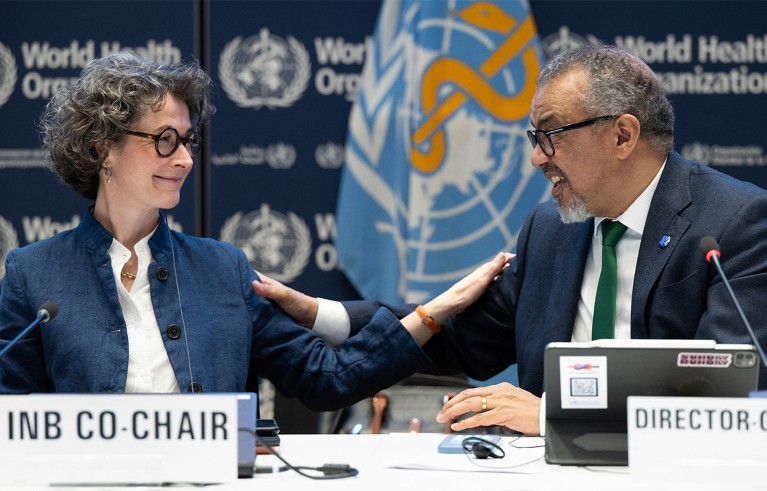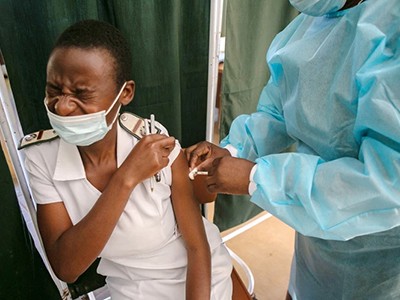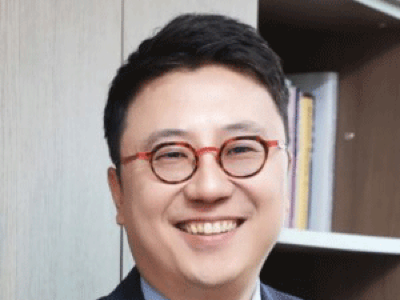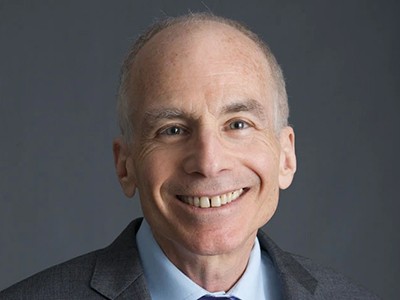You might have full entry to this text through your establishment.

Anne-Claire Amprou, co-chair of the pandemic treaty talks, with WHO director-general Tedros Adhanom Gebreyesus on the talks’ conclusion.Credit score: Christopher Black/WHO/AFP/Getty
“I’m overwhelmed, overjoyed!” These had been the phrases of Treasured Matsoso, co-chair of the World Well being Group (WHO) group tasked with negotiating the primary international treaty on stopping and responding to pandemics. She was chatting with Nature shortly after a historic accord was agreed within the small hours of 16 April on the WHO headquarters in Geneva, Switzerland.
First international pandemic treaty agreed — with out the US
The draft treaty represents the primary time the world has agreed the naked bones of a plan centered on prevention of, preparedness for, and response to a pandemic. It took greater than 3 years and 13 formal rounds of conferences to barter.
At occasions, there have been causes to suppose the negotiations may fail, together with seemingly intractable disagreements between international locations at completely different revenue ranges. That was even earlier than the announcement in January, after the election of Donald Trump as president, that america meant to withdraw from the WHO and would take no additional half within the treaty talks.
The textual content agreed in Geneva shouldn’t be as strongly worded as some health-equity proponents would have appreciated. But it surely lays the groundwork for measures that might save lives when the subsequent pandemic strikes — making certain that vaccines shortly get to those who want them most and growing the sharing of data about pathogens, in addition to of vaccines, medicine and the way to make them.
Negotiating a pandemic treaty is simply step one — how will international locations comply?
That an settlement was finally solid sends a strong sign concerning the energy of collaboration and multilateralism in a world the place such approaches appear to be waning. One authorized scholar who labored with the WHO to draft the treaty informed Nature that the US exit really accelerated its signing — by spurring different international locations to show the significance of collaboration. The treaty was agreed “not regardless of Trump, however due to Trump”, says Lawrence Gostin, a specialist in well being regulation and coverage at Georgetown College in Washington DC.
At one level, the talks had been caught as a result of lower-income international locations needed ensures of improved entry to medicine and vaccines in a future pandemic, whereas higher-income international locations had been involved that calls for to share mental property and merchandise might stifle the very innovation wanted throughout a pandemic. Compromise was reached on the understanding that the switch of know-how could be voluntary and on “mutually agreed” phrases.
Entry and fairness
One a part of the treaty that international locations will now work out intimately is named Pathogen Entry and Advantages Sharing (PABS). This grants pharmaceutical corporations entry to scientific information, comparable to pathogen samples and genomic sequences, in return for more-equitable sharing of medication, vaccines and diagnostics throughout a pandemic.
International locations have agreed the outlines for the way sharing will work — together with the proviso that, throughout a pandemic, not less than 20% of the vaccines, medicine and diagnostics produced by taking part producers can be made obtainable to the WHO, which is able to distribute them in response to want. The duty of creating this side of the treaty operational will fall to a future working group. How it’s carried out might decide the treaty’s final success.
The pandemic treaty: a grand international social cut price
A key concern for researchers is that nations don’t inadvertently make data-sharing harder throughout a pandemic, for instance, by creating methods that impede the free movement of knowledge. To safeguard towards this, scientists with expertise of working open data-sharing methods have to be included within the course of to outline the PABS system — as they’ve been thus far within the treaty-negotiation course of.
In contrast to COVAX, the unsuccessful try to share vaccines extra equitably throughout the COVID-19 pandemic, the pandemic accord can be legally binding. The textual content have to be agreed by the world’s well being ministers on the World Well being Meeting in Geneva later this month. After that, to turn out to be worldwide regulation, not less than 60 international locations should incorporate it into their very own nationwide legal guidelines, a course of referred to as ratification.
The story is not going to finish there, as a result of worldwide regulation could be notoriously troublesome to implement. Guaranteeing that vaccines and medicines — and the information to make and use them successfully — actually are equitably distributed within the subsequent pandemic will even require the need and assist of nationwide governments and pharmaceutical producers. Moreover, it’ll depend upon these events trusting one another.
Thus far, researchers, non-governmental organizations and drug corporations have been consulted as a part of the negotiations. It’s important that this inclusion proceed because the treaty strikes from negotiation to implementation. This can assist to make sure that innovation and the rules of open science are preserved and constructed on within the subsequent pandemic, alongside fairness of entry.


